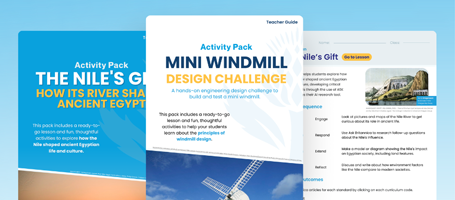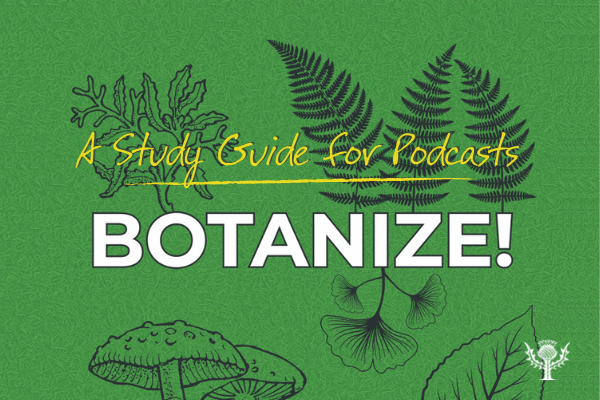From parasitic plants to kelp forests, Botanize! – the new podcast series from Britannica – aims to showcase some of Earth’s finest nonanimal life-forms and their brilliant ecologies.
Our editors talk to experts about some of the world’s most remarkable plants, fungi and algae. These overlooked organisms have fascinating evolutionary stories to tell about survival, exploitation, adaptation and general scrappiness.
Now you can use this fantastic podcast for learning in your library or at home! The following activities will help kids and teens better understand and engage with the contents of the podcast.
Tune into the full Botanize! series on Britannica Library (Australia).
Tip:
Libraries subscribed to the New Zealand or Asia version of Britannica Library can also tune into this podcast at:
Britannica Library (New Zealand) ↗
Britannica Library (Asia) ↗
Britannica Library (Asia version in China) ↗
Why use Podcasts for Learning?
A podcast, according to Robert Rozema, is “a blog in audio form.” It is a form of oral storytelling and is a great educational tool for a bunch of reasons;
- Authentic Voice: Podcasts provide examples of how people really talk, they often involve real conversations, interviews and speech
- Diversity: Podcasts demonstrate a variety of languages, accents and cultures
- Convenient: You can listen anywhere and anytime as long as you have access to the Internet
- Interesting: Podcasts are engaging, their format is designed to be interesting and entertaining for the curious minded learner
- Improve Speaking: Listening activities like a podcast can improve students’ listening skills
Botanize! Activities
Introduction
- Play an episode from the “Botanize!” podcast. These tasks can be repeated for any episode.
- Using listening skills discuss the following:
- What is the episode about? What is the main idea?
- Who is speaking/being interviewed?
- What is the subject or topic being talked about?
- What parts of the podcast were interesting? Boring? Why?
- How is it structured? What do the podcasters do at the beginning, at the end and between transitions?
- How does the podcaster build the story or argument?
- Are there any sound effects, music, and other tools used? If so, for what effect?
- What questions do you have as a result of listening?
Botanize! Task 1
Listen to the episode again and take notes.
- What aspects of the podcast did you enjoy?
- What aspects would you avoid?
On large pieces of paper, using coloured markers, draw, write keywords, link ideas, make connections about key themes and techniques used during the podcast. etc.
Botanize! Task 2
Discuss “How would you respond to the podcaster?” Use ideas gathered from discussions to write a letter to the podcaster.
Botanize! Task 3
Have you ever created your own podcast? Now is your chance to give it a go. Think about the techniques you identified in Task 1. Some themes for a podcast include:
- Travel Guide Audio Tour – give an audio tour of a local tourist attraction.
- Explore a Culture or Tradition – talk about a tradition or culture.
- Current News Events – create a news broadcast about a current news event.
- Debate – host a debate and record the conversation that ensues.
- Interviews – interview a guest about an interesting topic.
- Review – create an audio review for a book, movie or performance etc.
Some things to consider before recording:
- Who is the intended audience?
- What is the purpose of the podcast? Is it to entertain, inform or persuade?
- What name can you give to the podcast? Think of something catchy and witty to grab your listeners attention?
- How long will it run for? Keep in mind your audience and purpose when you decide on run time.
- It is worth drafting a script, practicing and reading it aloud, several times. Then make appropriate edits before you begin recording. This will make the world of difference to your familiarity with the topic and you voice animation and expression.
- Try recording shorter portions of audio and then editing snippets together.
- Practice reading and speaking aloud
- Would the addition of music and sound effects improve the podcast?
Download Study Guide (PDF document)
These activities and resources have been created using content from Britannica Library, the go-to site for safe, comprehensive research for all ages. Find out if your library already has access or set up your own free trial.
More Educator Resources
Sign up with your email for more free resources from Britannica.

